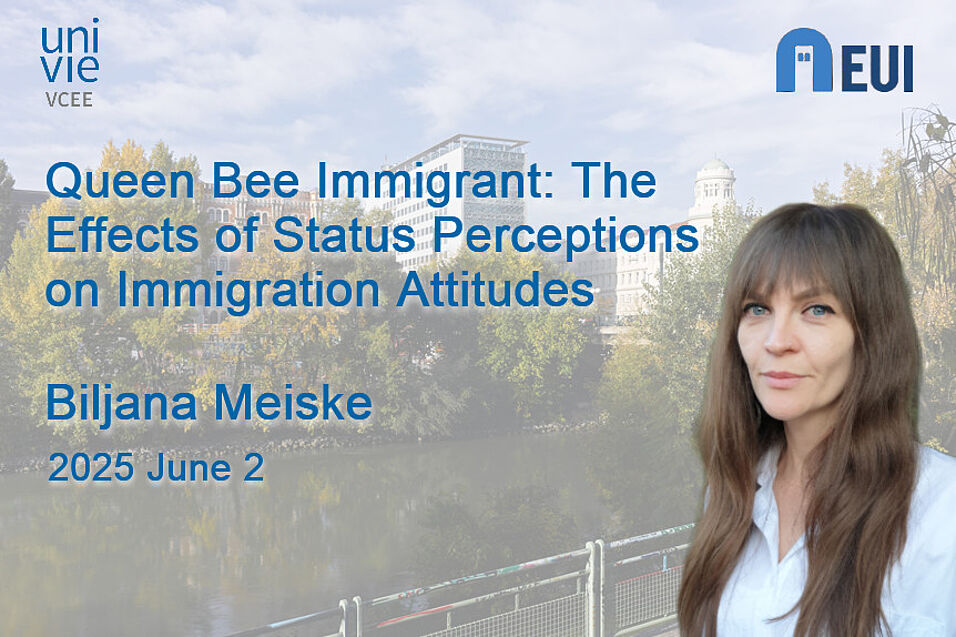Speaker: Biljana Meiske (EUI Florence)
Title: Queen Bee Immigrant: The Effects of Status Perceptions on Immigration Attitudes
When: Monday, 2 June 2025, 11:30 am – 13:00 pm
Where: Oskar-Morgenstern-Platz, lecture hall 5 (ground floor) (map)
Abstract:
This work examines a seemingly counter-intuitive phenomenon observed in many Western democracies, whereby parts of the immigrant population oppose new waves of immigration. I propose a mechanism based on group status distribution that, complementarily to other considerations, can help to explain these preferences. I hypothesize that relative status deprivation, that is, the degree to which a given national/ethnic group is ranked low in the ethnic status hierarchy of the host country, has a negative impact on the attitudes of its members toward even lower-ranked groups. In an experiment run with a sample of participants with an immigration background residing in Germany (N=1,159), I manipulate participants’ status perceptions by exposing them to either a positive or a negative evaluation of their national/ethnic in-group, as evaluated by a separate group of native-majority (German) participants. The results show that receiving a negative (rather than positive) evaluation of their in-group leads the participants to express more negative views of the refugees from the Middle East and to significantly decrease their willingness to donate to an organization supporting refugees, while not altering their generosity in a general setting unrelated to immigration. I additionally show that participants rely on the received evaluation of their in-group to update their perception of the norms surrounding prejudice expression toward the low-status groups in the host society. Finally, the results show that the treatment affects not only the privately held attitudes but also the participants’ willingness to publicly express them, as participants holding critical views of the refugees disclose them more readily when under the observation of the native-majority participants if they received a negative (rather than positive) evaluation of their in-group.
The paper can be found here.

